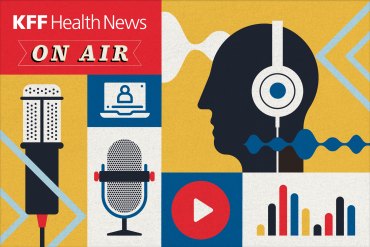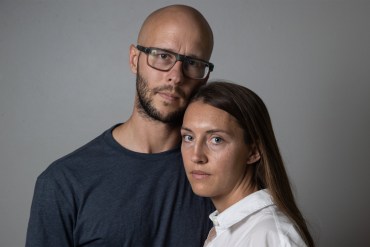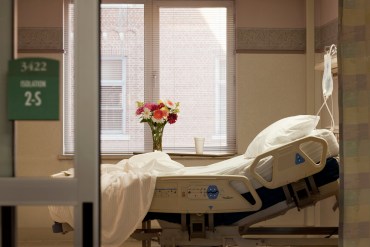The Nation’s 911 System Is on the Brink of Its Own Emergency
911 outages have hit at least eight states this year. They’re emblematic of problems plaguing emergency response communications due in part to wide disparities in capabilities and funding.
El sistema de emergencias del 911 está al borde del colapso
Mientras que algunos estados, ciudades y condados ya han modernizado sus sistemas de emergencia del 911 o han hecho planes para actualizarlos, muchos otros están rezagados.
HealthSherpa and Insurers Team Up To Curb Unauthorized ACA Enrollment Schemes
The initiative targets the biggest incentive driving fraudulent sign-ups and plan switches: the commissions that rogue agents or large call centers seek.
Planned Parenthood to Blitz GOP Seats, Betting Abortion Fears Can Sway Voters
The reproductive rights organization hopes to oust GOP incumbents from key California congressional seats by highlighting the possibility of a national abortion ban. A state Republican official calls it a swing and a miss, noting that, under Democrats, hospitals have closed maternity wards and filed for bankruptcy.
Medicaid for Millions in America Hinges on Deloitte-Run Systems Plagued by Errors
The technology has generated notices with errors, sent Medicaid paperwork to the wrong addresses, and been frozen for hours at a time, according to state audits, court documents, and interviews. While it can take months to fix problems, America’s poorest residents pay the price.
Americans With HIV Are Living Longer. Federal Spending Isn’t Keeping Up.
Advances in medicine mean more people are living longer with HIV. But aging with HIV comes with an increased risk of health complications, and many worry the U.S. health care system isn’t prepared to treat this growing population.
Journalists Discuss Abortion Laws, Pollution, and Potential Changes to Obamacare Subsidies
KFF Health News and California Healthline staff made the rounds on national and local media in the last two weeks to discuss topical stories. Here’s a collection of their appearances.
Investigan si los armadillos son responsables de la propagación de la lepra en Florida
La región central de Florida es un foco crítico de esta antigua enfermedad, lo que desconcierta a los científicos que están analizando el fenómeno.
Journalists Talk Cost of Weight Loss Drugs and Lack of Obesity Doctors to Manage Their Use
KFF Health News and California Healthline staff made the rounds on national and local media this week to discuss topical stories. Here’s a collection of their appearances.
Presidential Election Could Decide Fate of Extra Obamacare Subsidies
Most states that saw enrollment in the Obamacare marketplace double from 2020 to 2024 are in the South. But the enhanced federal subsidies that attracted people with $0 premiums and low out-of-pocket costs will expire next year.
The Case of the Armadillo: Is It Spreading Leprosy in Florida?
A single Central Florida county reported 13% of all U.S. leprosy cases in 2020. Researchers have teamed up to investigate whether armadillos are passing the bacteria that cause the disease to humans — which is especially concerning as the animals expand their range farther north.
High Price of Popular Diabetes Drugs Deprives Low-Income People of Effective Treatment
The makers of Ozempic and Mounjaro charge list prices of around $1,000 a month for the diabetes and obesity drugs, and insurers are reluctant to pick up the tab. Often, low-income patients have to resort to less effective treatments.
Personas de bajos ingresos no pueden recibir terapias efectivas contra la diabetes por el alto costo
La escasez de suministros y las barreras que ponen las aseguradoras para obtener esta poderosa clase de medicamentos, llamados agonistas de GLP-1, han dejado a muchas personas que viven con diabetes y obesidad sin los medicamentos que necesitan para mantenerse saludables.
Medics at UCLA Protest Say Police Weapons Drew Blood and Cracked Bones
In contrast to police statements, volunteer medics said they treated serious wounds as UCLA’s pro-Palestinian protest was besieged by police and counterprotesters, including some injuries that appeared to be caused by “less lethal” projectiles fired by cops.
La protesta de la UCLA, que reunió a miles de personas que se oponen a los continuos bombardeos de Israel sobre la Franja de Gaza, comenzó en abril y alcanzó un peligroso crescendo en mayo, cuando manifestantes pro Israel y la policía se enfrentaron a los activistas y a los que los apoyaban.
Journalists Delve Into Climate Change, Medicaid ‘Unwinding,’ and the Gap in Mortality Rates
KFF Health News and California Healthline staffers made the rounds on national and local media this week to discuss their stories. Here’s a collection of their appearances.
What Florida’s New 6-Week Abortion Ban Means for the South, and Traveling Patients
Florida has served as a haven for Southern pregnant women with little or no access to abortions. But the Florida Supreme Court upheld a six-week abortion restriction that begins in May — so now women across much of the South seeking abortions will have to look farther afield.
Journalists Drill Down on Bird Flu Risks, Opioid Settlement Payouts, and Fluoride in Drinking Water
KFF Health News and California Healthline staff made the rounds on national and local media over the past two weeks to discuss recent stories. Here’s a collection of their appearances.
City-Country Mortality Gap Widens Amid Persistent Holes in Rural Health Care Access
People in their prime working years living in rural America are 43% more likely to die of natural causes, like diseases, than their urban counterparts, a disparity that grew rapidly in recent decades, according to a new federal report.
Rising Complaints of Unauthorized Obamacare Plan-Switching and Sign-Ups Trigger Concern
Federal and state regulators are mulling what they can do to thwart this growing problem.




















